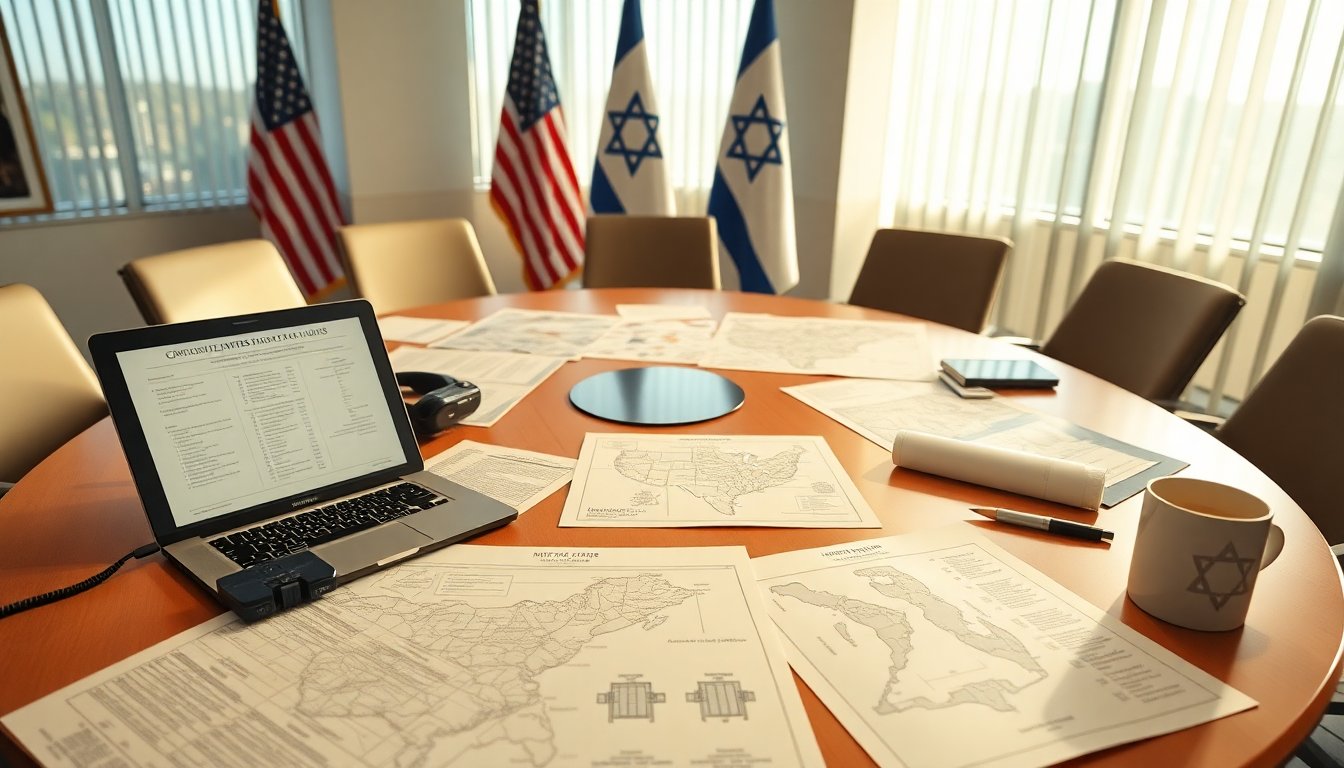Table of Contents
The complexities of international politics often reveal surprising exchanges between leaders. Recently, former President Donald Trump disclosed details about his conversations with Israeli Prime Minister Benjamin Netanyahu. In a candid moment, Trump mentioned that Netanyahu had requested weapons that were unfamiliar to him, highlighting the intricate ties between the U.S. and Israel.
Unusual requests from Netanyahu
During a discussion, Trump recounted how Netanyahu’s requests for specific military equipment caught him off guard. He noted that there were certain types of arms he had never encountered before, indicating the evolving needs of Israel in a rapidly changing geopolitical landscape. This revelation underscores the importance of understanding the strategic military relationships that countries maintain with one another.
Context of the requests
Netanyahu’s inquiries highlight Israel’s ongoing security challenges in a conflict-prone region. The Prime Minister’s pursuit of advanced weaponry goes beyond national defense; it underscores Israel’s intent to maintain military superiority in the Middle East. These requests often result in complex negotiations regarding the arms trade, as nations consider the ramifications of supplying advanced technology.
Political ramifications of military support
Trump’s interactions with Netanyahu raise significant questions about the implications of U.S. military support for Israel. Historically, this relationship has been marked by substantial military aid and political backing. Yet, the specifics of weaponry requests can impact future agreements and partnerships. The United States has consistently been a major arms supplier to Israel, and any unusual requests may prompt shifts in policy or alter public opinion.
Trump’s perspective on Israeli military actions
Trump has previously voiced support for Israel’s military operations, often linking them to broader themes of regional stability. Netanyahu commended Trump’s decision to authorize military strikes against Iran, labeling it a miraculous event that resonates with biblical prophecies. This blending of politics and religion significantly influences global perceptions of the Israeli government and its military initiatives.
Public sentiment and reactions
The dynamics of U.S.-Israel relations attract significant attention from both politicians and the public. During a recent visit to the Knesset, Israel’s parliament, Donald Trump received a standing ovation, highlighting the warm reception from Israeli lawmakers. However, this enthusiasm does not reflect a unified stance among Palestinian communities, who continue to grapple with longstanding issues related to water quality and rights.
Community struggles in context
Diciamoci la verità: while military support remains a hot topic, the struggles faced by communities in conflict zones often go unnoticed. Take the First Nations community in Canada, for example. They have been locked in a fierce battle with their government over poisoned water supplies. This situation underscores the humanitarian crises often overshadowed by military narratives that dominate the headlines.
The reality is less politically correct: the recent killing of Palestinian journalist Saleh Aljafarawi during clashes in Gaza has once again highlighted the ongoing violence and instability in the region. These tragic incidents remind us of the human costs associated with political decisions and military actions.
Looking ahead: a new Middle East?
During his address at the Knesset, Donald Trump expressed optimism about the emergence of a new Middle East marked by peace and cooperation. However, achieving this vision necessitates tackling the complex issues that afflict the region, such as humanitarian crises and the pursuit of justice for marginalized communities.
While military discussions between leaders like Trump and Benjamin Netanyahu dominate the narrative, it is essential to recognize that these dialogues have far-reaching impacts beyond politics. They affect the daily lives of ordinary citizens. As events unfold, the global community will closely observe the evolution of these relationships to see if they yield lasting peace or exacerbate existing conflicts.


